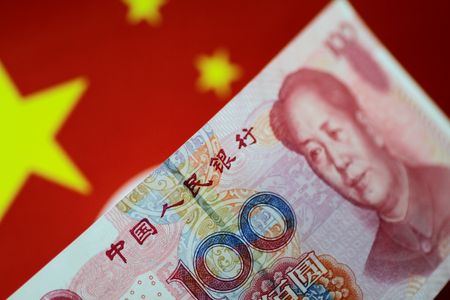 1
1 1
1
SHANGHAI (Reuters) – Chinese money is pouring into Japan-focused stock funds as the Nikkei hits 33-year highs, triggering repeated warnings from fund managers about market risks.
Two Shanghai-listed exchange-traded funds (ETFs) that track the Nikkei 225 Index have drawn such feverish interest, that their prices far exceed their net asset value.
The ETFs’ managers, E Fund Management Co and China Asset Management Co (ChinaAMC), flagged risks to investors for the third session in a row on Tuesday.
“We caution investors to pay attention to price premium risks in the secondary market,” the mutual fund companies said in separate statements.
“If investors invest blindly, they may incur huge losses.”
The Nikkei has gained 19% this year, with foreign investors in particular attracted by strong corporate earnings and signs of economic recovery.
Chinese investors have been ploughing money into a handful of ETFs that invest in Japanese stocks under QDII, the outbound investment scheme.
The Hua An Mitsubishi UFJ Nikkei 225 ETF has seen its assets under management more than double this year to 123.5 million yuan ($17.52 million).
Demand is also reflected in the price premiums of ETFs, which can be bought and sold like stocks.
The premium for the E Fund Nikko AM Nikkei 225 Index ETF shot up to 23% last Friday, before shrinking as the fund manager issued warnings. The size of the fund has expanded by nearly 60% this year.
The premium for the China AMC Nomura Nikkei 225 Index ETF surged to 18% in the secondary market on Friday.
($1 = 7.0483 Chinese yuan renminbi)
(Reporting by Samuel Shen, Li Gu in Shanghai and Tom Westbrook in Singapore; Editing by Kirsten Donovan)